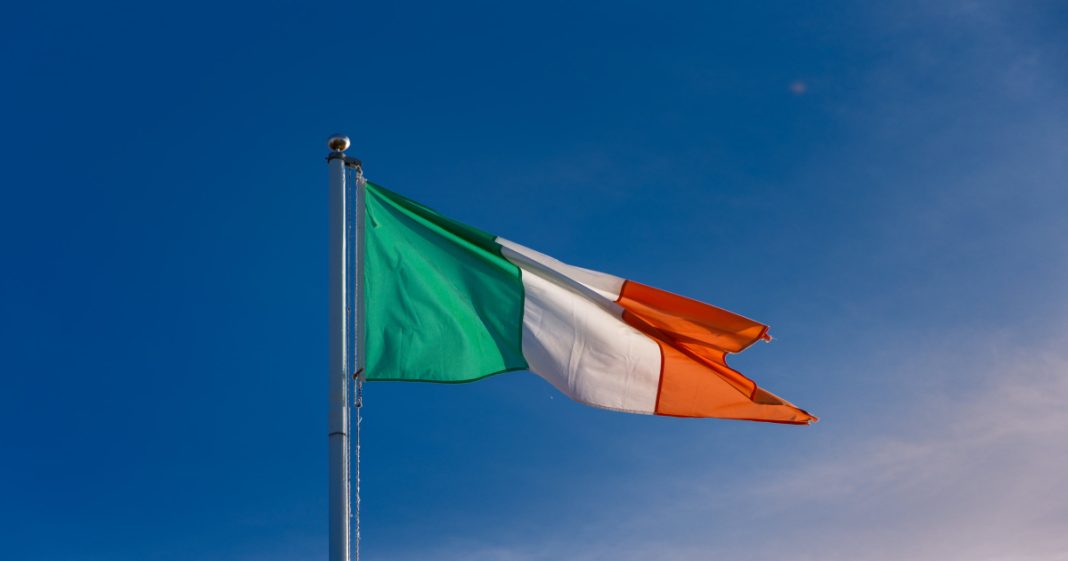Traveling from Ireland to Morocco? Get ready for a seamless journey with direct flights available from Dublin to multiple cities in Morocco, spanning an average flight duration of 3-4 hours. Multiple airlines offer convenient options for your travel. Once in Morocco, immerse yourself in the rich history and diverse cultural heritage, savor traditional Moroccan cuisines like tagine and couscous, and communicate easily as French is widely spoken alongside Arabic. Before you depart, ensure your passport validity meets requirements and research the weather conditions during your travel dates to pack accordingly. With these essential preparations in place, embark on a memorable adventure across continents.
Air Travel Essentials from Ireland to Morocco
Flight Options
Traveling from Ireland to Morocco offers several flight options for a convenient and efficient journey. Direct flights are available from Dublin to major Moroccan cities, including Marrakech, Tangier, and Agadir. For instance, flying from Dublin to Marrakech Menara Airport takes approximately 3 hours and 30 minutes. Once in Marrakech, travelers can immerse themselves in the city’s rich history by visiting its historical sites, exploring bustling markets, and marveling at stunning architecture.
On the other hand, direct flights from Dublin to Tangier Ibn Battuta Airport have a shorter duration of around 3 hours and 15 minutes. Tangier serves as a gateway to the northern region of Morocco with its beautiful beaches and unique cultural experiences. There are direct flights available from Dublin to Agadir Al Massira Airport with a flight duration of approximately 4 hours and 30 minutes. Agadir is renowned for its sandy beaches and vibrant nightlife scene.
Booking Tips
When planning air travel from Ireland to Morocco, it’s essential to consider some key booking tips for a smooth experience. Firstly, comparing prices across different airlines or travel websites can help secure the best deals on flights. It’s advisable to book tickets well in advance as this often results in more affordable fares. Furthermore, flexibility with travel dates can lead to significant savings on airfares when embarking on this international journey.
Using reputable travel websites or official airline platforms for booking is crucial for ensuring security and reliability throughout the reservation process.
Airport Procedures
Navigating airport procedures effectively contributes significantly towards hassle-free air travel between Ireland and Morocco. Arriving at the airport early allows ample time for check-in processes as well as security screenings before boarding your flight. Following instructions provided by airport staff during security screenings ensures compliance with regulations while maintaining safety standards within airports.
Keeping necessary travel documents easily accessible facilitates seamless transitions through various checkpoints within airports.
Entry Requirements for Irish to Morocco
Visa Policies
Irish citizens do not require a visa for tourist visits to Morocco. If you hold a passport from a different country, it’s crucial to check the latest visa requirements before planning your trip. Ensure that your passport has at least six months of validity remaining beyond your intended departure date from Morocco.
For instance:
- Irish citizens can enter Morocco for tourism without obtaining a visa.
- Individuals holding passports from other countries should verify the current visa regulations before traveling.
Passport Validity
When traveling from Ireland to Morocco, your passport must remain valid for at least six months beyond your planned departure date from the North African nation. Before embarking on your journey, take the time to check the expiration date of your passport and consider renewing it if its validity is nearing expiration.
For example:
- Ensure that your Irish passport remains valid for at least six months after you intend to leave Morocco.
- Always check and renew your passport if its expiration date is approaching.
Customs Regulations
Before heading off on your adventure, familiarize yourself with both Ireland and Morocco’s customs regulations. It’s important to declare any items that may be subject to customs duties or restrictions when entering or leaving either country. Furthermore, make sure you are aware of prohibited items when entering or exiting Morocco.
For instance:
- Familiarize yourself with both Irish and Moroccan customs regulations before departing.
- Declare any items subject to customs duties or restrictions upon arrival in either country.
Transportation Within Morocco
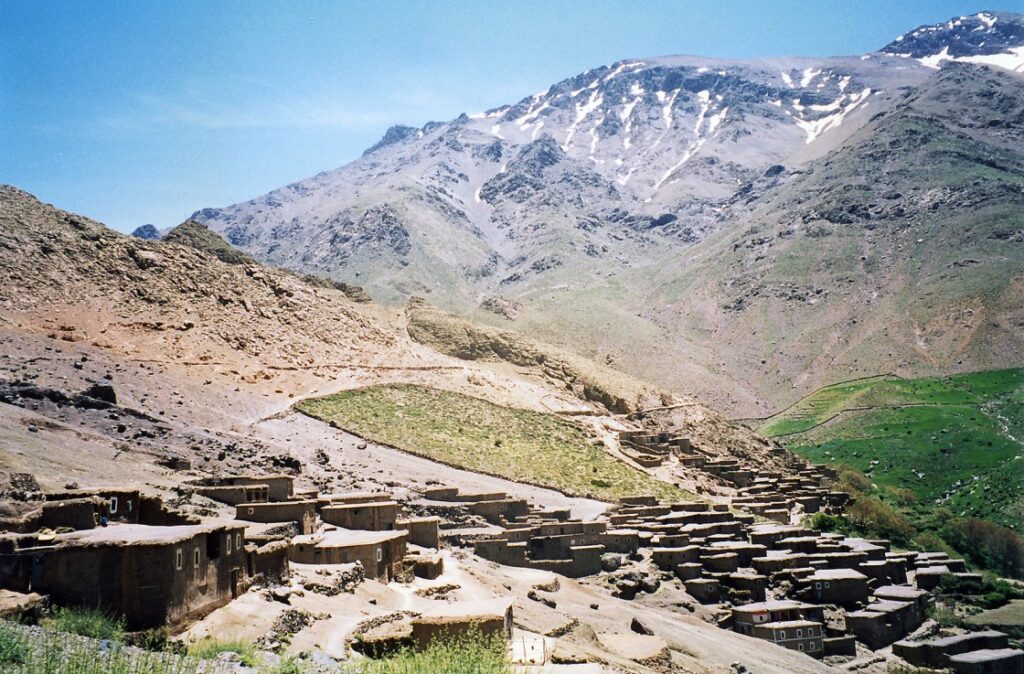
Car Rental
Travelers from Ireland to Morocco have the option of car rental services available in major cities and airports. It’s important to note that an international driving permit is generally required for renting a car in Morocco. When driving, it’s essential to adhere to local traffic rules and regulations.
For instance, travelers can rent cars at Mohammed V International Airport in Casablanca or Marrakech Menara Airport. With a valid driver’s license and an international driving permit, they can explore the diverse landscapes of Morocco at their own pace. However, they must familiarize themselves with Moroccan road signs and driving customs before embarking on their journey.
Pros:
- Flexibility to explore various destinations at leisure
- Convenient access from major airports
Cons:
- Need for an international driving permit
- Adherence to local traffic rules is necessary
Public Transit
In addition to car rentals, travelers can also utilize public transit options when moving around Morocco. The country boasts an extensive public transportation network comprising buses and trains. Buses serve as a common mode of transport within cities as well as between different regions.
Furthermore, trains provide comfortable and efficient travel options between major cities such as Casablanca, Rabat, Fes, Marrakech, and Tangier. This makes traveling across longer distances within Morocco more manageable for visitors arriving from Ireland.
Key Information:
- Extensive public transportation network including buses and trains
- Comfortable travel options between major cities via trains
Taxis and Rideshares
Another convenient way for travelers from Ireland to get around in Moroccan cities is through taxis and rideshare services like Uber where available. Taxis are readily accessible throughout Moroccan urban areas; however, passengers should negotiate the fare with the driver before commencing their journey.
Moreover, shared taxis known as grand taxis are commonly used by both locals and tourists alike for intercity travel within Morocco. These shared taxi services offer a cost-effective means of transportation between different regions while allowing passengers opportunities to interact with locals during their travels.
List of Examples:
- Negotiating fares with taxi drivers.
- Utilizing shared taxis (grand taxis) for intercity travel.
- Availing rideshare services like Uber were operational.
Understanding Moroccan Laws
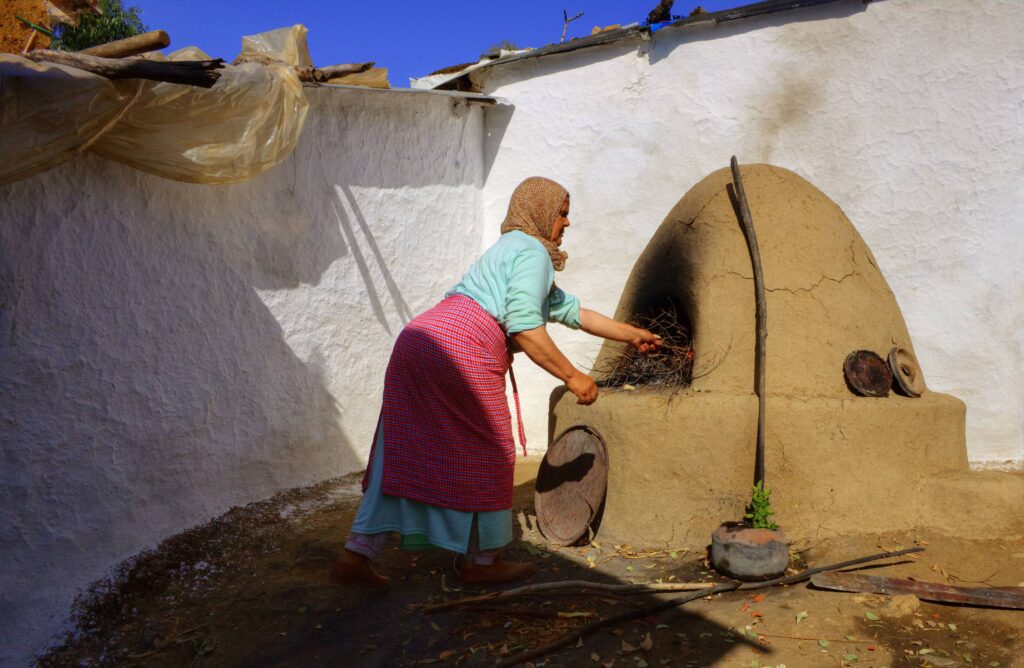
Local Customs
When traveling from Ireland to Morocco, it’s crucial to respect Islamic traditions and dress modestly, particularly when visiting religious sites. Greeting locals with “Salam” (peace) upon entering shops or establishments is customary. Bargaining in markets is a common practice, so visitors should feel comfortable negotiating prices.
In Morocco, travelers need to adhere to certain customs and traditions. For instance, when visiting mosques or other religious sites, dressing conservatively by covering the shoulders and knees is highly recommended. Furthermore, engaging in polite greetings and using Moroccan phrases such as “Salamo Aliakom” can go a long way in fostering positive interactions with locals.
When navigating through Moroccan markets or souks, visitors should embrace the art of bargaining while shopping for various goods. Bargaining not only adds an element of cultural immersion but also allows travelers to secure reasonable prices for items they wish to purchase.
Legal Restrictions
Travelers from Ireland to Morocco should be aware that possession and use of drugs are strictly prohibited in Morocco. It’s essential to exercise caution and comply with local laws regarding controlled substances during their visit.
Moreover, LGBTQ+ travelers need to be mindful that homosexuality is illegal in Morocco; therefore, discretion is advised when expressing affection publicly or discussing personal matters related to sexual orientation.
Photography restrictions may apply at specific locations within Morocco. Areas such as military installations or government buildings often have strict regulations against photography due to security concerns.
Understanding legal restrictions in Morocco helps ensure a safe and respectful experience for all travelers during their visit.
Duty-Free Allowances
Before traveling from Ireland to Morocco, individuals should check both countries’ duty-free allowances so they can make informed decisions about what goods they can bring into the country without being subject to additional taxes or duties.
For example: When traveling from Ireland to Morocco, passengers may be allowed to bring a limited quantity of alcohol and tobacco products duty-free; however, certain items such as firearms and narcotics are strictly prohibited from entry into the country.
Being familiar with these allowances can help prevent any potential issues at the border and ensure a smooth entry into Morocco.
Health and Safety
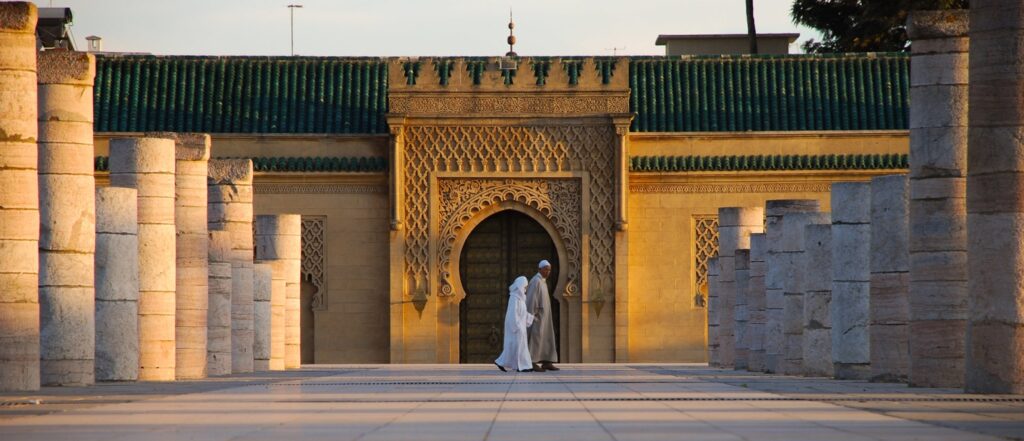
Vaccinations
Before traveling from Ireland to Morocco, it’s crucial to consult your healthcare provider for recommended vaccinations. Commonly advised vaccines include Hepatitis A and typhoid, essential for travelers to Morocco. Consider obtaining a tetanus-diphtheria bThe entry gates of Moroccoooster if necessary.
It’s important to prioritize your health by taking preventive measures before embarking on your journey. By getting the recommended vaccinations, you can safeguard yourself against potential health risks in Morocco. For instance, Hepatitis A is prevalent in many developing countries, including Morocco.
Medical Insurance
When traveling from Ireland to Morocco, ensure that you have comprehensive travel medical insurance that covers medical expenses in the destination country. It’s also advisable to carry necessary prescription medications and a copy of your prescriptions during your trip.
Having adequate medical insurance provides peace of mind and ensures that you are financially protected in case of unforeseen medical emergencies while traveling abroad. Moreover, carrying essential prescription medications and copies of prescriptions can be lifesaving if access to specific medications becomes challenging during the trip.
Emergency Contacts
Prioritize safety by saving important contact numbers before traveling from Ireland to Morocco. This includes local emergency services such as 112 (the emergency number in Morocco) and the contact information for your embassy or consulate. Keep a copy of your passport and other essential documents secured at all times during your travels.
In case of unforeseen circumstances or emergencies while in Morocco, having quick access to vital contacts can make a significant difference in ensuring timely assistance and support. Furthermore, sharing your travel itinerary with family or friends back home adds an extra layer of precaution by enabling others to stay informed about your whereabouts throughout the trip.
Communication Solutions

Internet Access
Wi-Fi is widely available in hotels, cafes, and restaurants in major Moroccan cities. This makes it convenient for travelers to stay connected while exploring the country. However, it’s essential to note that internet speeds may vary depending on the location. To ensure continuous access to online resources, consider purchasing a local SIM card upon arriving in Morocco.
Purchasing a local SIM card allows you to have reliable internet access on your mobile device throughout your travels in Morocco. Whether you need to use maps for navigation or stay connected with loved ones back home, having a local SIM card can be incredibly beneficial. Having access to data on your phone can help you quickly look up information about various attractions and activities during your trip.
- Wi-Fi widely available
- Varying internet speeds
- Consider purchasing a local SIM card
Mobile Networks
Major mobile network providers in Morocco include Maroc Telecom, Orange, and Inwi. These companies offer prepaid SIM cards that provide affordable local calling and data services. If you plan on using your mobile device frequently for calls or accessing the internet during your time in Morocco, it’s advisable to purchase a prepaid SIM card from one of these providers.
Before traveling from Ireland to Morocco, ensure that your phone is unlocked so that you can use a different SIM card once you arrive in the country. This step is crucial as it enables seamless connectivity without any restrictions imposed by locked devices.
Financial Planning
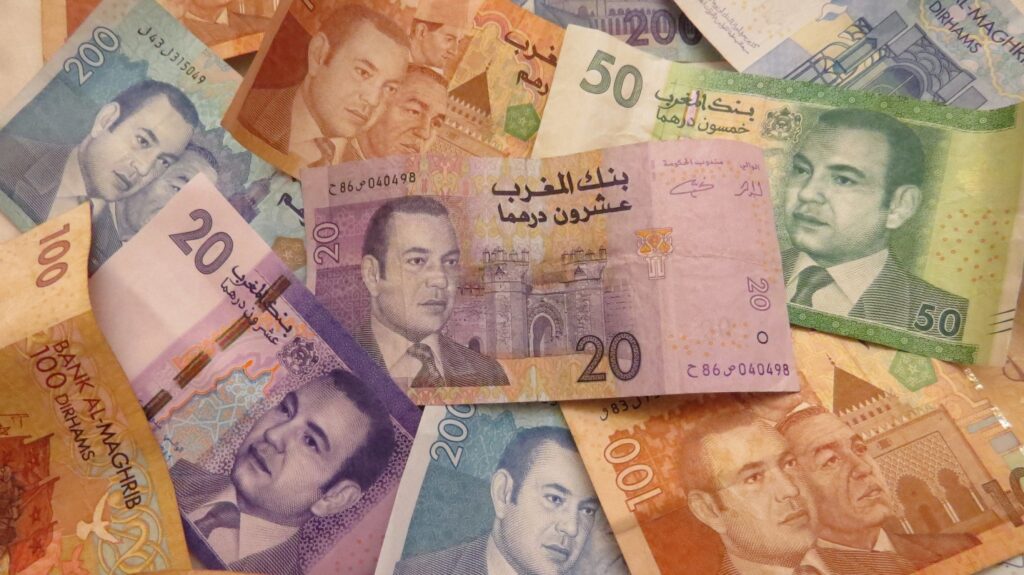
Currency Exchange
When traveling from Ireland to Morocco, it’s essential to consider currency exchange. The official currency in Morocco is the Moroccan dirham (MAD). You can exchange your money at airports, banks, or authorized exchange offices. It’s crucial to inform your bank about your travel plans beforehand so that you can use your cards without any issues while abroad.
Currency exchange services are widely available at various locations such as airports, banks, and authorized exchange offices. For a smooth trip, make sure to convert some of your money into local currency upon arrival in Morocco.
Informing your bank about your travel plans is vital as it helps prevent complications with using credit or debit cards while abroad. This simple step ensures that you won’t encounter any unexpected problems accessing funds during your travels.
Budgeting Tips
Morocco offers diverse accommodation options suitable for various budgets. From luxury hotels to budget-friendly hostels and guesthouses, there’s something for everyone. Researching and booking accommodations in advance can help secure the best deals based on your budget and preferences.
In addition to accommodation choices, budget-conscious travelers will appreciate the affordability of street food and local eateries throughout Morocco. Sampling delicious traditional dishes from street vendors or small restaurants not only provides an authentic culinary experience but also helps save money on meals.
Bargaining is a common practice when shopping in markets and souks across Morocco. Whether purchasing handcrafted goods or souvenirs, negotiating prices with local vendors can lead to significant savings on items of interest.
Cultural Etiquette
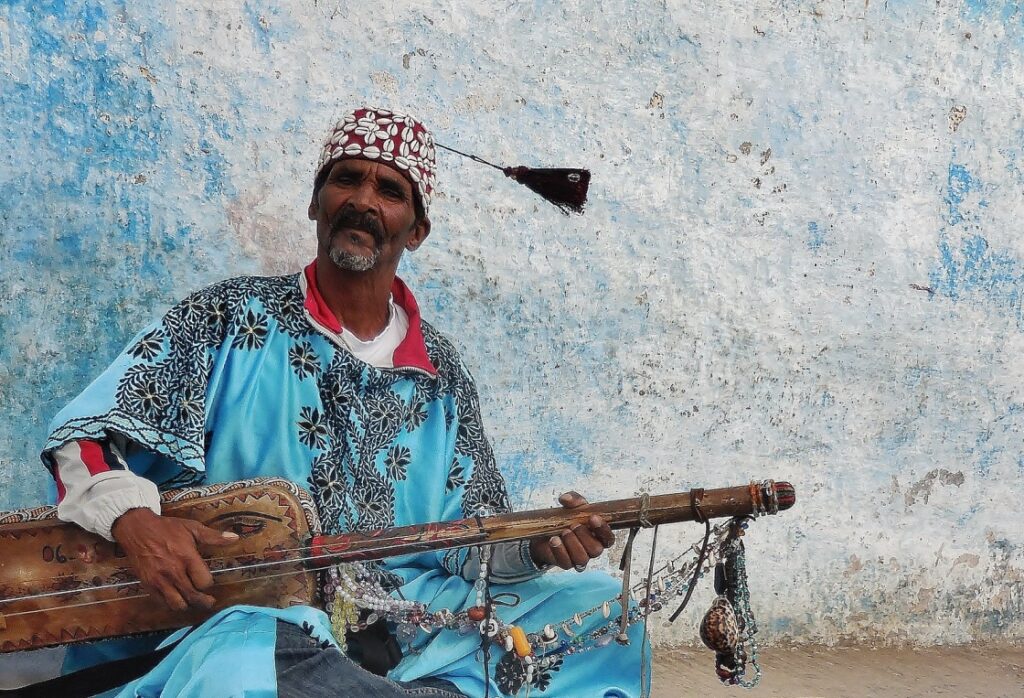
Dress Code
When traveling from Ireland to Morocco, it’s crucial to adhere to the local dress code. In rural areas and religious sites, it’s essential to dress modestly. For women, carrying a scarf or shawl is advisable for covering their shoulders when necessary. While beachwear is acceptable at coastal resorts, it should be avoided in public places.
In Morocco, respecting the dress code demonstrates cultural awareness and respect for local customs. Modest attire helps travelers blend in with the locals and shows consideration for traditional values. By following these guidelines, tourists can avoid inadvertently offending and ensure a more positive experience during their visit.
- Respect local culture by dressing modestly
- Carry a scarf or shawl to cover shoulders when needed
- Avoid wearing beachwear in public places
Social Norms
Understanding Moroccan social norms is essential for visitors from Ireland. Hospitality and politeness are highly valued in Moroccan society; therefore, being courteous in interactions is important. Removing shoes when entering someone’s home or a mosque is customary.
Moreover, public displays of affection should be avoided as they may be considered inappropriate within Moroccan culture. Being mindful of these social norms helps visitors show respect towards the locals and fosters positive interactions during their stay.
- Value hospitality and politeness
- Remove shoes when entering homes or mosques
- Avoid public displays of affection
Conclusion
In conclusion, traveling from Ireland to Morocco requires careful planning and consideration of various aspects such as air travel essentials, entry requirements, ground transportation, understanding Moroccan laws, health and safety, communication solutions, financial planning, and cultural etiquette. By addressing these key areas, travelers can ensure a smoother and more enjoyable experience when visiting Morocco. It is essential to stay informed about the latest travel advisories and regulations to avoid any potential issues during the trip.
For a successful journey, individuals should continue to monitor official sources for any updates or changes in travel protocols and guidelines. By staying proactive and well-prepared, travelers can make the most of their visit to Morocco while respecting the local customs and regulations.
Frequently Asked Questions
Irish citizens need a valid passport with at least 6 months of validity. A visa is not required for tourist visits of up to 90 days. Check the latest entry requirements before traveling.
In Morocco, travelers can use taxis, trains, buses, or car rentals as common modes of ground transportation. It’s advisable to research and plan based on your specific destinations within Morocco.
Travelers should be mindful of local customs and laws related to dress codes, public behavior, and photography restrictions, especially around government buildings or military zones.
Consider purchasing a local SIM card upon arrival or using international roaming services offered by your home mobile provider. Wi-Fi is also widely available in hotels and cafes.

